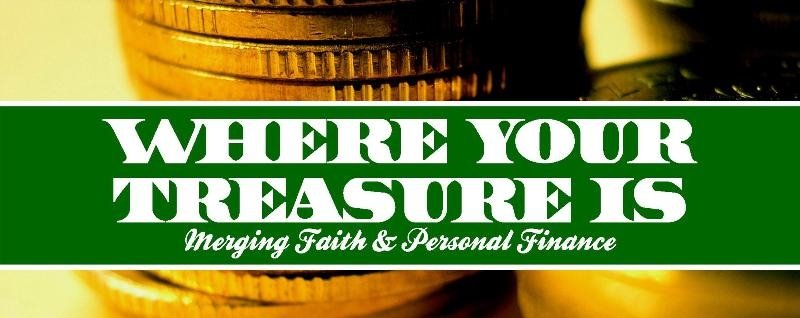NOTE: I'm sorry it's been so long since our last update in this series. I really don't have any excuse for the delay, and I apologize.
 Chapter five of David Bach's book is entitled "Automate for a Rainy Day." As you might expect, this chapter deals with building an emergency--or "rainy day"--fund. The chapter even contains a purpose statement: "This chapter answers two basic questions: How much money should you put aside in order to protect yourself from the proverbial 'rainy day,' and where should you put it?" (pages 135-136).
Chapter five of David Bach's book is entitled "Automate for a Rainy Day." As you might expect, this chapter deals with building an emergency--or "rainy day"--fund. The chapter even contains a purpose statement: "This chapter answers two basic questions: How much money should you put aside in order to protect yourself from the proverbial 'rainy day,' and where should you put it?" (pages 135-136).Nearly every financial planning book contains this step, because, no matter how much planning we do, things go wrong. There are emergencies. Sadly, these emergencies often sidetrack people's financial goals and lead them back into, or further into, debt. If we have a plan, though, we can avoid such a serious setback.
Bach, as Dave Ramsey does, uses "months" instead of "dollars" to figure out a rainy day fund. On page 136, he writes a short "sleep well at night" test. Here it is:
My monthly expenses currently total $_________.
I currently have $___________ saved in a money market or checking account.
This equals _______ [insert number] months' worth of expenses.
The numbers can be estimated, because most of us have a pretty good idea how much those are. Tragically, for many of us, the second number is $0!!!
The next step, after realizing that you need money to handle emergencies is to follow Bach's "Three Rules of Emergency Money."
1. Decide how big a cushion you need. Bach sets the minimum bar at 3 months' worth of expenses. He goes beyond Dave Ramsey by suggesting that some people may even need as much as two years' worth! The main thing is that it is enough (1) to cover a certain number of months, and (2) to help you sleep at night.
2. Don't touch it. Bach mentions that many people start saving their fund, only to have an "emergency" all the time! Notice what Bach says, which is worthy of reading and remembering:
What's a real emergency? Be honest with yourself. You know what a real emergency is. A real emergency is something that threatens your survival, not just your desire to be comfortable. (140)
3. Put it in the right place. While Bach doesn't think we should put the money in something like stocks or bonds (because it has to be liquid), he also points out (with a GREAT story, I might add) that we don't need to bury it in our backyard or stuff it under our mattress. You should earn at least some interest on this fund, because you need at least a small hedge against inflation.
Bach's suggestion is to "shop for a rate like you'd shop for a car" (143). His primary location for a rainy day fund is in a money market account, but some pay terrible interest and others have a lot of fees. If you are frugal, you will shop for a car very carefully, trying to get the best deal. The same should be true of a money market fund. Just a small percentage difference, over time, can pay off in a large way.
Over the next several pages, Bach walks the reader through the process of setting up an account and answers several important questions which are worthy of your reading. He even lists several places that have money market accounts that are fairly easy to use.
He then mentions using US Savings Bonds as a possibility. I disagree with him here. While buying bonds has become easier (you can do it online), they have a terrible rate of return and, in my mind, you are helping the government use debt!
Finally, Bach mentions the question, "What if I'm in debt?" In other words, if you aren't debt free, do you need to build up an emergency fund. Bach differs from Dave Ramsey here slightly, bu the principle is the same. Whereas Ramsey says you should start off with $1000 in your emergency fund, Bach says you should work toward building up one months' worth of expenses, then go back to paying off debt aggressively. To me, either is acceptable and both are reasonable.
Of course, Bach says over and over that you should automate the savings into this account. In other words, when you set up your rainy day account, make sure you set it up to automatically come out of your paycheck (or your checking account) at a specific time each month.
With these steps out of the way, Bach has you paying off your debt and building up your emergency fund at the same time. While that's not my favorite way of doing it, the benefits are there, if you can stick with the program.




